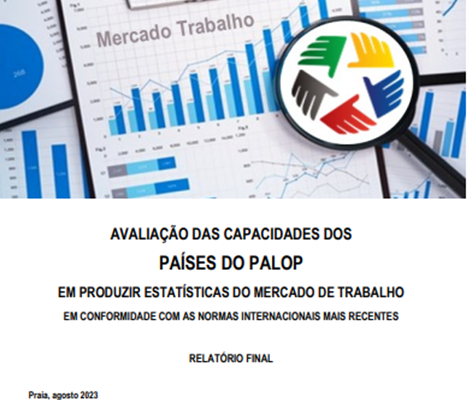
Despite the progress made in the development of the National Statistical System (NSS) in the Portuguese-speaking African Countries (PALOP), there are still significant asymmetries and challenges in the NSS in relation to labour market information, especially in terms of compliance with international recommendations and the production of official statistics (MSI): scarcity of resources (financial and human in quantity and quality); insufficient and limited technical-analytical capacity; the MSI, as a “public good of democratized dissemination and accessibility” is, in most cases, fragmented, in some cases not produced on a regular and/or updated basis, has limitations in terms of coverage/scope, comparability, predictability, quality. However, it is undeniable that there is a growing need to produce quality, timely and timely MSIs to meet the needs of users and policy makers in the labour market, with a direct impact on governance and development of countries.
In this context, the objective of this study was to carry out a diagnosis of the labour market data and information ecosystems and to strengthen the technical-analytical capacities of the NSS in Portuguese-speaking countries, following the new international statistical standards, through activities aimed at creating systems and/or promoting processes that strengthen capacities and improve the regularity in the production of labour market statistics for public policy decision-making in the area of the labour market, especially in the operationalization of the Decent Work Agenda. This report was presented during the Side event: “South-south and triangular co-operation – experience of Lusophone countries in labour statistics” which took place on October 19, 2023, in the framework of the 21st International Conference of Labour Statisticians,
During 2023, the ILO initiated a project to develop a support network among Lusophone countries, this report is an outcome of which. The side event highlighted the early progress of this work, including an overview of the support needs of Portuguese-speaking countries in Africa and the potential for a network including Brazilian Institute of Geography and Statistics (IBGE) to meet some of those needs.
To access to de report (in Portuguese), click here.

